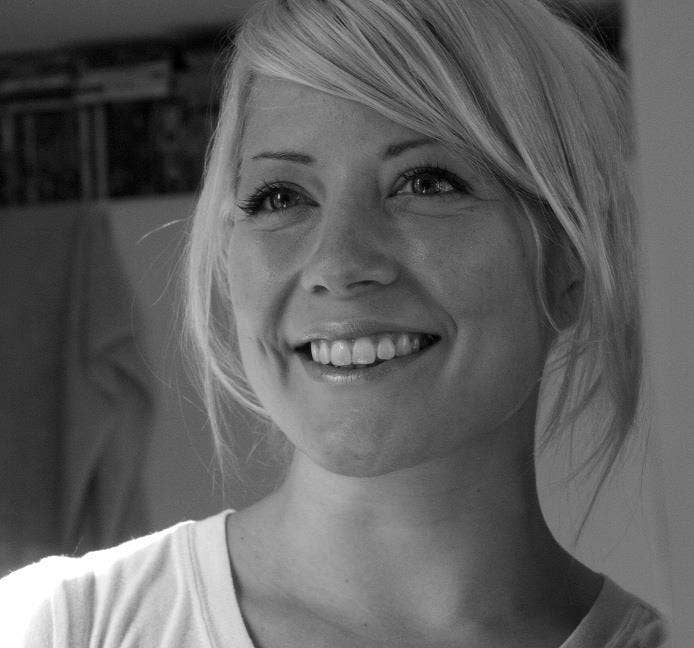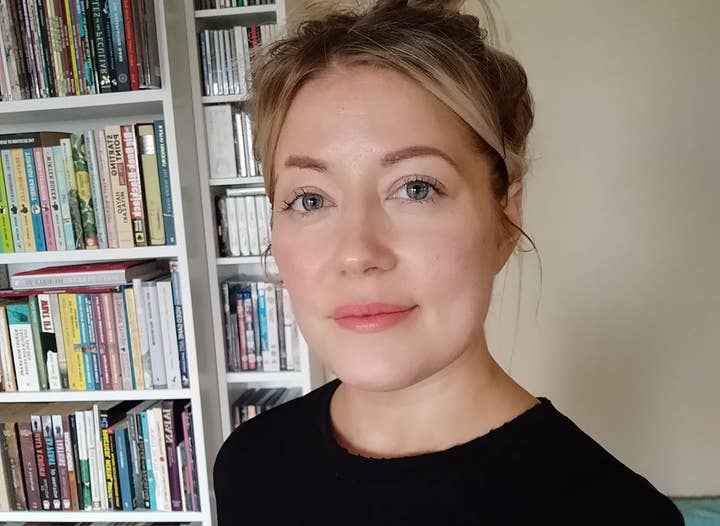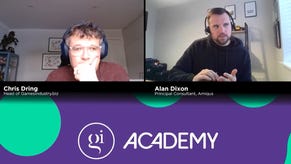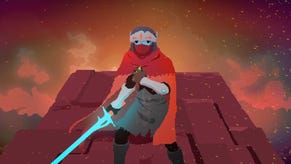From student to professional -- advice for the road ahead
Fundamentally Games' Emelie Edholm has some advice for students and graduates building a career in the games industry
You have decided to follow the passion that is aflame in your heart get a job in games. That is super exciting, and I'm cheering for you.
However, while passion is great, it isn't always enough -- along the way you might need to keep a couple of things in mind. I have decided to split this article into two parts: the first gives three pointers for when you're still in university, and the second part offers three pointers when starting out on your first job.
One small step, one giant Mario leap...
It is easy to feel overwhelmed when starting at university, especially if this is your first time away from home or first experience of academia. With 2020 being such a cursed year, I realise that some of these pointers might be hard to practice face-to-face, but engagement can happen online as well and putting your best foot forward doesn't necessarily mean that you have to be there in person.
The advice worked for me, in my particular situation, but may need tweaked and modified for each person's particular situation -- make it your own. Since there are so many different types of games studies and courses, I have tried to focus on the more general aspects of how you might be able to get a leg up during your time as a student.
1. Volunteer
The reason I got invited to do a lot of cool things and represent Abertay University at various events was because I showed interest in helping out and taking part. Yes, I sacrificed some weekends and late nights and sometimes my back was aching from carrying chairs and tables. Volunteering isn't always comfortable, but I always had a laugh with friends in the meantime, or got to meet new friends while guarding doors during conferences or showing people different game exhibitions.
While passion is great, it isn't always enough -- along the way you might need to keep a couple of things in mind
Yes, this advice might not be easy to follow if you need to work while studying or have other engagements -- I realise that. But I still stand by the premise that you can show interest and talk with your lecturers about wanting to engage. Maybe weekends don't work for you? Ask if there is anything happening during the weekdays or evenings. Be open to the possibilities.
I also want to underline that volunteering is not the same as working for exposure or working for free. Think of volunteering as giving back to the community, which might later lead to work or a reward -- but the fundamental thing is that you are giving back out of your own accord and because you want to.
2. Take part in game jams
Your future self will thank you for starting early with participating in game jams. They are an easy way to pad out your portfolio, and like volunteering, they show future employers that you engage with the process of making games. And they are a lot of fun.
If it feels scary starting out making games during your first year, I suggest talking to a lecturer to see if they might be able to introduce you to senior students that you can jam with. If your university has a game development society, I'd give them a visit and see if they organise any jams or digital meetups, where you can get support and ask questions.
There are endless jams running online via Itch.io, or through Discord groups that have a focus on game jams and indie development. There is also a lot of free tools online for quick development, but use the tools you have at hand -- even if that's just paper and a pen.

There's always a game jam going on somewhere, but the two big ones to look out for are Global Game Jam and the Game Maker's Toolkit Jam. Remember to always jam safely: sleep and eat well and take care of yourself.
3. Get a Twitter account
If you don't have a Twitter account, I suggest getting one. Yes, people joke about it being a hellscape and sometimes it does remind you of "if thou gaze long into an abyss, the abyss will also gaze into thee."
But despite those silly jokes, it is a great place for following developers, companies, updates, and news. I found the job I have now by noticing a post from a developer that I follow. She pointed me in the direction of where to apply and the rest is history.
Twitter can be a really good tool for students to share their work and get their names out there without having to spend money on conference tickets or events.
Work work work
Did you land a job? *throws confetti in your face* Congratulations! To get you going I have some advice and tips on how to handle this new walk of life.
1. Ask questions and confirm
As the popular saying goes: "When you assume, you make an ass out of you and me."
The pandemic probably means you are working remotely in some form. Working online means that you don't get all the small cues you pick up on when you talk to someone face-to-face -- body language, facial expressions, etc. Things get lost in translation, and especially if you are new at work and don't know people, there might be lingo, shorthand or phrases that are a mystery to you.
Care for your heart and mental wellbeing, realise that you are important and valued and that you need to be a whole person
By repeating or paraphrasing an instruction or assignment back to your line manager, you can instantly get feedback if you have understood the work correctly. Think of it as wearing both suspenders and a belt -- it is an insurance against some mistakes that could easily be avoided.
2. Keep a "dump list"
I am a mess. I have always struggled with forgetfulness and focus. When I am trying to do four things at the same time, I always forget something I was supposed to do. During normal life I can handle this pretty okay, but when I started working as a producer, this completely overloaded me and I struggled.
I need to credit this to my manager [Fundamentally Games co-founder] Ella Romanos -- she told me about a "dump list" and having one changed my workflow and took away a lot of worry weighing on my shoulders.
The premise is simple: have a place where you write down all your tasks. Not just a few or big ones, but all of them. The process of writing it down helps you to "download" your task to a safe place and you can just delete the task from your mental hard drive. It is very important that you keep writing down all tasks, because as soon as you don't the whole system collapses on itself.
I can't underline how much this has helped me, and I hope this can help someone who also struggles remembering all those spinning plates.
3. Recharge
It's all well and good that you work hard and do your best, but you need rest, too. Especially if you are working remotely, it is easy to blend your work hours into your free time.
I don't know how you recharge your mental batteries, but I know that it is incredibly important that you do -- don't push yourself over an edge where you might have trouble getting back from. Care for your heart and mental wellbeing, realise that you are important and valued and that you need to be a whole person.
The industry as a whole is getting better when it comes to work ethics, but it still has a way to go. As an eager new employee it is important that you keep a close eye on your wellbeing and limitations. The length of an industry career can be way too short, and I want you all to stay with us for the long run.
Good luck
All that's left to say is best of luck, you've got this. Find what works for you and share with others. The road from university to finding what you like to work with is not a straight line, and you will probably find yourself doing jobs you didn't imagine from the start -- and that's okay.
Take it from someone who used to sell lingerie and pour coffee (not at the same time) -- life takes you on a wonderful ride, try to enjoy it.
Emelie Edholm is a Swede based in Dundee, Scotland. She works as a producer for Fundamentally Games, and graduated from Abertay University in 2019.
Join Emelie on November 17 for a webinar on the progression from student to professional.








